
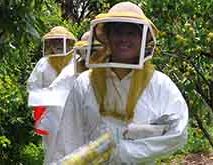
The secret to being a good beekeeper Currently Australia is free of many serious honey bee pests that damage the health of European honey bees overseas. According to Alison Saunders, National Manager for Horticultural Cropping at Plant Health Australia, exotic pests such as varroa, tropilaelaps or tracheal mites are a constant threat. “As bad as […] Read more

Another Asian honey bee nest has been found in the Hyde Park area of Townsville, but there were no varroa mites on the bees or in the nest. Biosecurity Queensland Varroa Mite Response Coordinator Dr Ashley Bunce said this latest nest was located in the eaves of a house that backed on to the property […] Read more
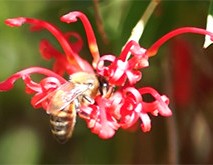
In an effort to ensure Australians can enjoy local fruit, nuts and vegetables for years to come, Horticulture Innovation Australia (Hort Innovation) has launched a significant pollination research investment fund. This likely multi-million dollar fund will invest in vital research to increase crop quality and yields through more effective pollination and alternate pollinators. Increasing the […] Read more
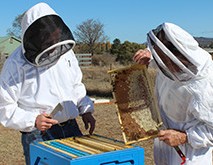
Alan Wade was the first President of the Beekeeper’s Association of the ACT. He helped establish the club about 40 years ago, but the number of members has grown enormously in the last few years, because it’s become fashionable to keep bees. Alan says that honey bee biosecurity is all about bee condition. “You need […] Read more
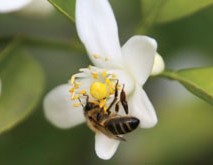
A smart phone application to help beekeepers identify pests in their hives is part of a suite of digital tools being developed to improve the biosecurity capability of the industry. The project will also see a review and re-design of the BeeAware website, an online biosecurity training course, and an annual survey of beekeepers conducted […] Read more
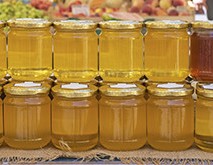
Preliminary results from a massive five-year research project show that some types of Australian honey promise to be every bit as good as New Zealand’s manuka honey, when it comes to fighting bacteria. Scientists involved in the study are calling on beekeepers from every corner of the country to continue providing honey samples from bees […] Read more
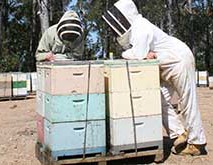
Beekeepers in NSW now have an advisor on hand to help them keep their hives free from pests and diseases. Hayley Pragert has started work in the new role of Bee Biosecurity Officer as part of a joint industry–government initiative to look after Australia’s honey bees. Alison Saunders, Horticultural Cropping Manager at Plant Health Australia […] Read more
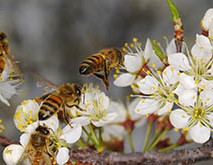
Australia’s honey bees are some of the healthiest in the world, free from many pests and diseases found elsewhere. To help keep it that way, the manual that provides biosecurity advice to beekeepers has been updated and is now available. Over recent years the number of people taking up beekeeping has increased markedly in both […] Read more
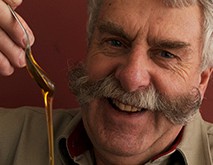
Beekeeper Lindsay Bourke, who owns and runs Australian Honey Products, has bred bees that clean out their brood nest at the whiff of a pest or disease. Lindsay is a finalist for the Plant Biosecurity Farmer of the Year Award, sponsored by Plant Health Australia. He manages 3,600 hives for honey production and the pollination […] Read more
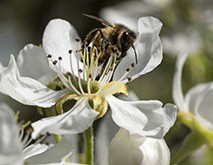
There are big benefits to be had from honey bee pollination, according to Plant Health Australia (PHA), and the best way to find out how is to check the crop-specific information on the BeeAware website and keep up-to-date by signing up for the monthly e-newsletter. BeeAware is a hub of information for growers and beekeepers […] Read more

Over recent years the number of beekeepers in Australia has increased markedly in both urban and regional areas. They now have access to a wealth of information about keeping bees and honey bee biosecurity with the release of the book the Australian Beekeeping Guide. This book was previously published under the title Beekeeping in 1991. […] Read more

Australian farmers and beekeepers now have access to a world-first smart-phone application to help ensure the safety of bees during normal farming practices. CropLife Australia today launched BeeConnected, a first of its kind geomap based, user-driven communication and coordination tool to help protect Australia’s honey bee population. Chief Executive Officer of CropLife Australia, Matthew Cossey, […] Read more
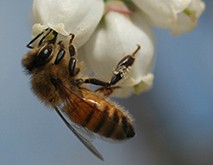
The use of netting to protect crops from hail, wind and birds is becoming increasingly popular among fruit growers but it can seriously affect pollination. Trevor Monson, who coordinates the placement of thousands of hives each year for orchardists and other growers, says the key to getting the most from honeybees is to talk to […] Read more
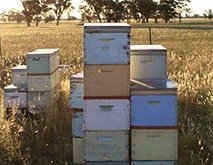
A symposium held in Canberra on 9 April 2014 concluded that neonicotinoids, a newer class of insecticide commonly used to control insect pests in crops, are unlikely to be presenting any greater threat to honey bees and crop pollination than other pesticides which have been in use for many years. Read more
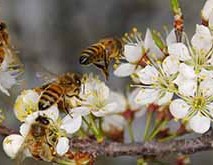
On 12 December 2013, the Senate referred an inquiry into the future of the beekeeping and pollination service industries to the Rural and Regional Affairs and Transport References Committee. Read more